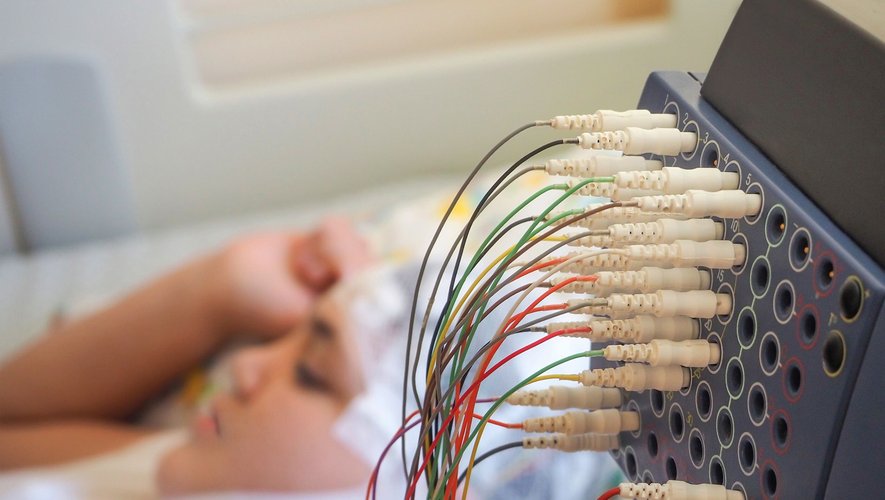(AFP) – Epilepsy may be one of the most common neurological disorders, but it remains difficult to diagnose and treat. The health authorities are seeking to improve the situation but risk coming up against the lack of resources that affects the entire health system.
“I had exactly four years of medical wandering,” said Anna-Louise Lavigne, a patient in her thirties whose first crises date back to adolescence and first gave rise to an erroneous diagnosis of schizophrenia.
Like about 600,000 French people, Ms. Lavigne is, in fact, suffering from epilepsy, a neurological disorder which manifests itself in recurrent seizures and with very variable manifestations: convulsions, sudden loss of consciousness, tingling in the limbs or even hallucinations. .
In the case of the young woman, the epilepsy first manifested in hallucinations without loss of consciousness, although this eventually intervened in later seizures during her adult life.
“I only knew the form of epilepsy that you see everywhere, with convulsions, I didn’t know it could be hallucinations”, explains the patient, finally diagnosed at 19 thanks to a long 24-hour electroencephalogram .
These difficulties reflect the complex and variable nature of epilepsy. This is, in reality, not a specific disease in itself but a family of disorders which are manifested by an abnormal excitation of a group of neurons. The root causes vary and sometimes cannot be identified.
Treatments exist and, in about two-thirds of cases, stabilize the seizures. But a large number of patients remain resistant to the drugs and are also unable to be operated on, in particular because the epileptic “focus” is too close to crucial areas of the brain.
Still, if the complex nature of epilepsy partly explains its difficulties in taking charge, patients also point to shortcomings in the healthcare system. This is the case of Anna-Louise Lavigne who reports that caregivers have often been helpless in the face of her symptoms during emergency visits.
– “To manage all alone” –
These shortcomings are particularly present when epilepsy strikes children, with some parents feeling left on their own, such as Marilyn, who took months to obtain a satisfactory diagnosis after her three-year-old son’s first seizures.
“You have to manage on your own”, regrets the young mother who does not wish to give her surname so as not to publicly expose the health of her child. She had to call a dozen hospitals, for lack of being given a list of establishments able to carry out examinations on children.
The situation is sufficiently unsatisfactory that the health authorities are now seeking to remedy it, after years of mobilization by patient associations. The High Authority for Health (HAS) thus presented guidelines on Wednesday to better organize the health course of children and adults with epilepsy.
These pathways aim, for example, to better guide patients according to the severity and rarity of their epilepsy, depending on whether it can be mainly monitored by a general practitioner or whether it requires the attention of a specialized neurologist. The idea is also to allow follow-up that goes beyond that of crises alone, but also responds to associated and disabling disorders, such as memory loss.
But if the associations are already satisfied with the development of better adapted pathways, this may not be enough to solve a number of basic problems, often linked to the general lack of human and financial resources in the world of health.
There are thus few neurologists specializing in epilepsy in France. More broadly, there is a lack of caregivers trained in the specificities of this disorder.
“I am not lucky enough to be able to benefit (from the support) of a psychologist trained in epilepsy”, testified the neurologist Cécile Sabourdy, during a conference of the HAS, about the CHU of Grenoble where she works.
However, she points out, epilepsy is frequently accompanied, especially in adolescents, by strong anxiety linked to the unpredictable nature of the seizures and their complications which, in very rare cases, can be fatal.

